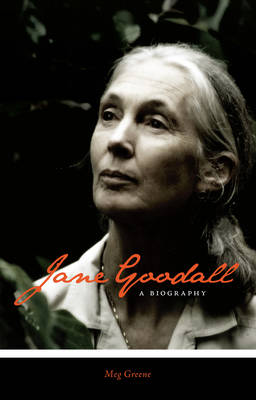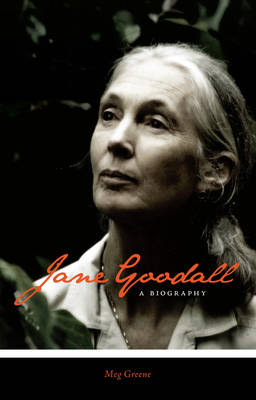
- Retrait gratuit dans votre magasin Club
- 7.000.000 titres dans notre catalogue
- Payer en toute sécurité
- Toujours un magasin près de chez vous
- Retrait gratuit dans votre magasin Club
- 7.000.0000 titres dans notre catalogue
- Payer en toute sécurité
- Toujours un magasin près de chez vous
Description
Recent polls identify Jane Goodall to be the most recognizable living scientist in the Western world. Her work with chimpanzees at the Gombe Stream Reserve in Tanzania has been renowned as one of the great achievements of scientific research. Her approach to field study, once ridiculed and challenged by the scientific world, has now become the model for other ethologists to use.In this insightful biography, Meg Greene tells the story of Goodall's life from her early days growing up in England under the influence of her mother, through her experiences as a young protégé of anthropologist Louis Leakey pioneering new techniques of investigating chimpanzee behavior in Africa, to her mature career as an expert on chimpanzee social life and her ongoing efforts today to promote the conservation of wildlife.Greene describes how Goodall's work challenged and changed perceptions of the relations between the primate and human worlds. Contrary to accepted scientific opinion of the time, which viewed chimpanzees as brutish, Goodall found chimps to be capable of a wide range of emotions, including affection, compassion, and love. She also showed that chimps could reason, think, and solve problems. Perhaps most startling, Goodall discovered that chimpanzees could fashion primitive implements from grass, twigs, and leaves, dispelling the notion that humans are the only species that can make tools.On the personal side, Greene reveals that Goodall found solace in her home at Gombe from the trials of life that included a divorce, the death of her second husband, criticisms from fellow scientists, and a deep spiritual crisis.This is a fascinating story of a naïve young woman who started her work without even a college degree and eventually developed into a dedicated scientist and a world-famous conservationist and humanitarian. For more than 45 years, Jane Goodall has reached out to the world to join in her efforts to aid those who cannot speak for themselves, and to promote respect for all living creatures.
Spécifications
Parties prenantes
- Auteur(s) :
- Editeur:
Contenu
- Nombre de pages :
- 170
- Langue:
- Anglais
Caractéristiques
- EAN:
- 9781591026112
- Date de parution :
- 01-04-08
- Format:
- Livre broché
- Format numérique:
- Trade paperback (VS)
- Dimensions :
- 139 mm x 213 mm
- Poids :
- 195 g

Les avis
Nous publions uniquement les avis qui respectent les conditions requises. Consultez nos conditions pour les avis.






